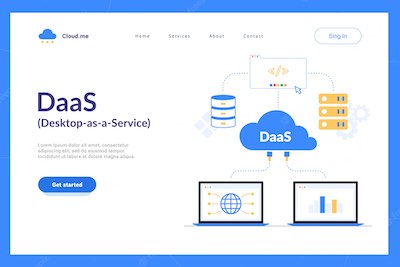 Application Programming Interfaces (APIs) have become increasingly important in the world of cloud services. APIs are essential components of cloud services, and they allow different applications and services to communicate with each other. In this article, we'll provide a beginner's guide to understanding the role of APIs in cloud services.
Application Programming Interfaces (APIs) have become increasingly important in the world of cloud services. APIs are essential components of cloud services, and they allow different applications and services to communicate with each other. In this article, we'll provide a beginner's guide to understanding the role of APIs in cloud services.
What Are APIs?
An API is a set of protocols, routines, and tools that software developers use to build applications. APIs define the interactions between different software components, allowing them to communicate with each other. In the context of cloud services, APIs are used to define how different applications and services can interact with each other.
How Do APIs Work?
APIs work by defining a set of rules and protocols that govern how different applications and services can communicate with each other. When an application or service needs to communicate with another application or service, it sends a request to the API, which then processes the request and sends a response back to the requesting application or service.
One of the key advantages of APIs is that they allow applications and services to be developed independently of each other. This means that developers can focus on building their own applications or services, without having to worry about how they will integrate with other applications or services.
How Are APIs Used in Cloud Services?
In the context of cloud services, APIs play a critical role in enabling different applications and services to communicate with each other. Cloud service providers typically provide a set of APIs that allow developers to build applications that can access and manipulate data stored in the cloud.
For example, a business might use a cloud-based CRM (Customer Relationship Management) system to manage its customer data. The CRM system might provide an API that allows other applications to access and manipulate this data. This API could be used to build a custom reporting application that generates reports based on the CRM data, or to build a mobile application that allows sales reps to access customer data on the go.
Benefits of APIs in Cloud Services
There are many benefits to using APIs in cloud services, including:
- Increased Flexibility: APIs allow developers to build applications that can access and manipulate data stored in the cloud, without having to worry about how that data is stored or managed. This makes it easier for businesses to adapt to changing market conditions or customer needs.
- Improved Efficiency: APIs make it easier for different applications and services to communicate with each other, which can help businesses to streamline their processes and workflows. This can lead to increased efficiency and productivity.
- Enhanced Collaboration: APIs make it easier for different teams and departments within a business to work together. For example, a marketing team might use a cloud-based analytics tool to track website traffic and engagement. The analytics tool might provide an API that allows the marketing team to share this data with the sales team, so that they can use it to inform their sales strategies.
- Increased Innovation: APIs allow developers to build innovative new applications and services that can access and manipulate data stored in the cloud. This can lead to new business opportunities and revenue streams.
Choosing the Right APIs for Your Business
With so many different APIs available, it can be challenging to choose the right one for your business. Here are some factors to consider when selecting an API:
- Compatibility: Does the API work with the applications and services you are using?
- Security: What security measures does the API provider have in place to protect your data?
- Cost: Is the API cost-effective for your business, or will it end up being more expensive than traditional solutions?
- Reliability: Can you rely on the API provider to keep the API running smoothly and without interruption?
- Support: What level of support does the API provider offer, and how responsive are they to customer needs?
Popular APIs for Cloud Services
There are many popular APIs available for cloud services, each with its own unique features and benefits. Here are a few examples:
- Amazon Web Services (AWS) API Gateway: AWS API Gateway is a fully managed service that makes it easy for developers to create, publish, and manage APIs. It allows businesses to build scalable, secure, and cost-effective APIs that can be used by a wide range of applications and services.
- Google Cloud Platform (GCP) API Gateway: GCP API Gateway is a fully managed service that allows businesses to create, deploy, and manage APIs on Google Cloud. It provides a wide range of features, including authentication, monitoring, and caching, to help businesses build secure and reliable APIs.
- Microsoft Azure API Management: Azure API Management is a fully managed service that allows businesses to create, publish, and manage APIs on Azure. It provides a wide range of features, including traffic management, authentication, and monitoring, to help businesses build scalable and secure APIs.
Conclusion
In conclusion, APIs are an essential component of cloud services, allowing different applications and services to communicate with each other. APIs provide a wide range of benefits, including increased flexibility, improved efficiency, enhanced collaboration, and increased innovation. When choosing an API for your business, it's important to consider factors like compatibility, security, cost, reliability, and support. By choosing the right API for your business, you can build scalable, secure, and cost-effective applications and services that take full advantage of the benefits of the cloud.














